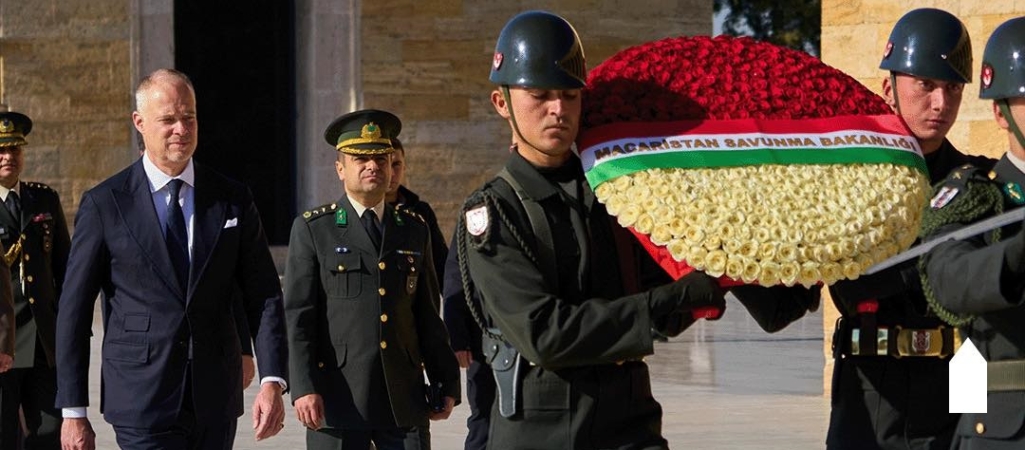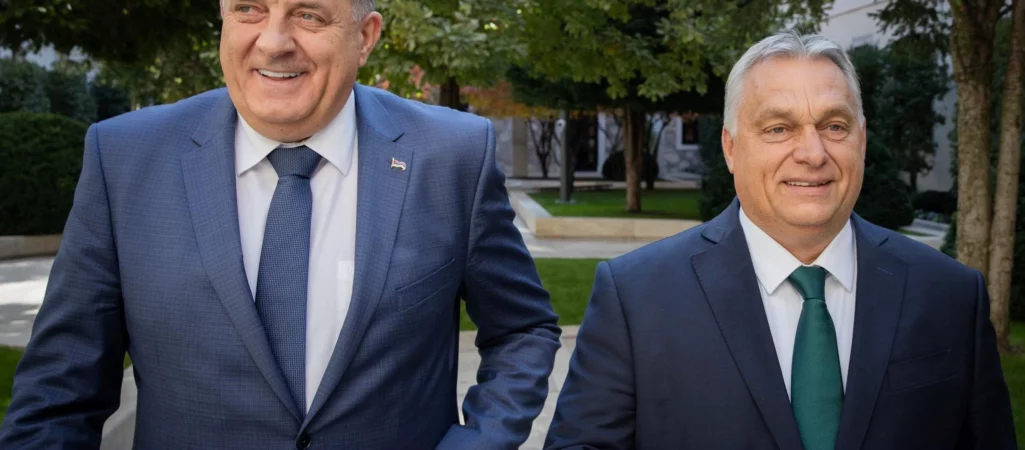The “glacial progress” of the European Union’s enlargement in the Western Balkans is clearly a failure of the bloc, Foreign Minister Péter Szijjártó said on Tuesday, warning that the EU should speed up the process after being “weakened by recent security crises”.
After meeting Montenegro’s finance minister, Aleksandar Damjanovic, in Budapest, Szijjártó told a joint press conference that the Western Balkans was key to strengthening the EU, and that enlargement should be a focal point of EU policy. “The extremely slow enlargement process weakens the EU further, which is very problematic amid various security crises,” he said. The EU has opened all chapters for Montenegro’s integration but has closed none in the past five-and-a-half years, Szijjártó said. Hungary has called on the Czech presidency to convene an intergovernmental conference to “close several chapters”, Szijjártó said.
Hungary has a security and economic interest in the EU integration of the Western Balkans, he said. Referring to migration, he said “defence lines” should be pushed further south thereby freeing Hungary’s borders of “the siege of illegal migrants”. Integration would also bring new economic opportunities, he added. A Hungarian-owned company is already market leader in Montenegro’s banking sector, and another is the second largest in the telecommunication sector, he noted.

Read alsoTurkey and Hungary are partners and allies, says defence minister in Ankara
Hungary’s government continues to support the success of Hungarian companies abroad, a measure key to avoiding recession, he said. Meanwhile, the EU is under double pressure from the war in Ukraine in the east and the fallout of illegal migration in the south, he said. Hungary itself has received 1 million Ukrainian refugees this year and thwarted 235,000 attempts of illegal entry in the south, he said. He also reiterated that, while Hungary is ready to continue supporting Ukraine on the basis of bilateral agreements, it will not agree to EU member states taking out loans jointly for that purpose.
“We have seen how that works during the coronavirus pandemic; we have seen what a joint loan looks like. It was a valuable experience, and we will not support it again,” he said. Responding to a question, Szijjártó said the US midterm elections under way on Tuesday would have a big impact on the future of Hungarian-US cooperation. The government is following events there closely, he said. Regarding Hungary’s gas supply contracts, he said “without harming trade secrets and national security interests, I can only say that the price calculation formula in the contract makes purchase prices sensitive to changes in European share prices.”

Read also Orbán fights fiercely for the EU integration of the West Balkans
Source: MTI
please make a donation here
Hot news
What happened today in Hungary – 26 July, 2024
Drama: number of births in a 20-year low in Hungary
Yay or nay? – 6 odd Hungarian delicacies that make our skin crawl
Budapest tourism “exploded” this past weekend
Container transport in Budapest may stop: How will this affect Hungarian economy?
Minister: Hungary will protect its territory by every means possible




1 Comment
Mr. Szijjártó knows the rules: new entrants must meet the Copenhagen criteria, which they currently do not:
https://www.eeas.europa.eu/eeas/eu-and-western-balkans-towards-common-future_en
These criteria are (and we are currently struggling to meet a few, ourselves!):
1) stability of institutions guaranteeing democracy, the rule of law, human rights and respect for and protection of minorities;
2) a functioning market economy and the ability to cope with competitive pressure and market forces within the EU; and
3) the ability to take on the obligations of membership, including the capacity to effectively implement the rules, standards and policies that make up the body of EU law (the ‘ acquis ’), and adherence to the aims of political, economic and monetary union (NOTE – yes, this is what we signed up for).